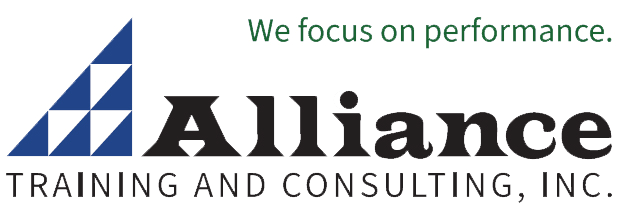Employers Can Create a Legally Defensible Position Against Harassment Claims
By: Attorney Max Muller
Hello. My name is Max Muller. I am an attorney, and my friends at Alliance Training and Consulting have asked me to explain to you how you can establish a legally defensible position with regard to claims of sexual harassment.
To understand all this, I need to tell you a little bit of a back-story on sexual harassment in general. There are actually two types of sexual harassment. here is quid pro quo harassment, and there is hostile environment harassment. Now quid pro quo; those are the Latin words for “this for that,” like an exchange, if you will. Hostile environment is where a person or a person’s actions have the purpose, or the effect of, unreasonably interfering with the worker’s ability to do their job.
Regarding quid pro quo harassment, it can only come from a supervisor. Only a supervisor can engage in this trade-off type of sexual harassment. The other form of harassment, hostile environment, can be from anyone: coworker, member of management, or even someone outside of the organization.
There are two famous Supreme Court cases that happened in 1998. One of them was Burlington Industries vs. Ellerth. The other was Faragher vs. City of Boca Raton.
In those cases, there is a common theme or message. We, as employers, must establish effective anti-harassment, anti-discrimination policies, but in addition to that, our workers have to follow those policies. If a supervisor engages in quid pro quo sexual harassment that results in a tangible job action such as hiring, firing, promotion, demotion and the like being taken for or against the victim, you have no legal defense. No hyperbole. No exaggeration. No melodrama. You have no legal defense.
However, there are some other things to come out of those cases. What if, in fact, the supervisor engaged in sexual harassment but there was no tangible job action. Now it is hostile environment harassment (not quid pro quo harassment). This is the same type of harassment that any staff member or anyone outside the organization could engage in. Now you have a chance to defend yourself.
That’s really the point I want to make. If your organization has an established anti-harassment policy and you have communicated that policy in an effective manner, primarily through training, so you engage in behavior modification and so staffers understand that they have accessible avenues of redress that they can talk not only to their supervisor but also to any supervisor or HR. If they understand they won’t be retaliated against. If they understand that confidentiality will be maintained to the greatest extent possible, and they don’t take advantage of your internal administrative procedures. Those cases are thrown out of court and summary judgment is made against them. That is the Ellerth / Faragher defense.
Now states like California and Connecticut have actually established state laws saying you must train supervisors on some sort of a periodic basis. California’s law is the more strict law, so let’s focus on that one. It mandates that supervisors must receive sexual harassment training no less often than once every two years.
I would suggest to you very strongly that to establish your organization’s defensible position so you can use the Ellerth / Faragher defense, beyond training managers and supervisors, you also need to train general staff. Let’s not lose sight of what’s happening here. If an employee understands your policy, if they do not in a timely way take advantage of that internal administrative procedure, boom that’s it, they really do not have a case. Summary judgment - they’re thrown out of court. So I urge you to have an effective anti-harassment policy, and communicate it in an effective manner primarily through training, and establish a legally defensible position against claims of harassment.
© 2015 Alliance Training and Consulting, Inc.
View our Sexual Harassment in the Workplace Training Classes
